Blog
What are the side effects of eating raisins?

Understanding Raisins
Raisins are seeds-free dried grapes which have the most of their water removed by a process called hydrolysis. It is by this process that the fruit is brought out to be as sweet as it could be and also last longer. Raisins have a lot of natural sugar, most of it is fructose and glucose, which gives them a sweet taste.
Additionally, raisins are very rich in vitamins, minerals, and dietary fiber. They are a great lunch option due to their high potassium, iron, and B vitamin levels. There are also phytochemicals such as phenols and antioxidants in raisins, which have been known to be associated with many health benefits, for example good heart health and less inflammation.
Remember that raisins are healthy, but they are high in calories and should be eaten in small amounts as part of a healthy diet. If you eat a lot of raisins, they can start to produce some bad results that we are going to speak about in more detail.
What Happens When You Eat Raisins?
When eaten in balance, raisins are good for you in many ways, but too many of them or certain personal factors can cause side effects. Here are some bad things that might happen if you eat raisins:
- Weight Gain: Raisins are high in sugar and calories; therefore eating a lot of them will lead to weight gain, especially if you take a lot of them. Although raisins are a dietary food, if you overeat, you will likely take in more calories than necessary and that may result in weight gain.
- Problems with your teeth: Raisins are sticky and are full of natural sugars, which can stick to our teeth and help the bacteria in our mouths grow. A high sugar intake increases the susceptibility to cavities and other oral problems. To prevent dental problems you have to take care of your teeth by brushing and clean them after eating raisins.
- Pain in the Digestive System: Raisins have a high food fiber content, which can be considered both good and bad for your digestive system. Fiber plays a vital role in healthy digestion and normal bowel functioning, but consuming too much raisins may give you a gut ache, which is especially true if your digestive system is weak or you have IBS. This may include bloating, gas, and diarrhea.
- Blood Sugar Spikes: Raisins are a natural food but have a high glycemic index (GI) that causes your blood sugar to increase rapidly within a short time when you eat them in large amounts. On the other hand, for a person with diabetes or insulin resistance, this is a problem because their blood sugar levels become irregular and in turn, their diabetes symptoms become worse. Individuals with diabetes should control the number of raisins they consume and the portion of them they take to maintain their blood sugar.
- Sulfite Sensitivity: Some raisins sold in stores may contain sulfites, which are added as preservatives to keep the color and make the raisins last longer. Some people can have allergic responses or allergies to sulfites, which can cause headaches, skin rashes, or breathing problems. People who are sensitive to sulfite should choose organic or sulfite-free raisins to avoid possible bad effects.
- Potassium Overload: Raisins are a great way to get potassium, which is an important chemical for heart health, muscle function, and nerve communication. Even though potassium is good for you, getting too much of it can cause hyperkalemia, a situation where the blood has too much potassium. People who have kidney problems or take medicines that change potassium levels should watch how many raisins they eat to avoid getting too much potassium.
- Gastrointestinal Upset in Infants: Raisins should not be given to babies or young kids because they can choke on them and make their stomachs upset. Because raisins are sticky, they can be hard for little kids to chew and swallow, which raises the risk of them choking. Also, babies with weak tummies may have trouble digesting raisins because they have a lot of fiber.
- Interactions with Medicines: Raisins have chemicals in them that are naturally occurring and may cause problems when taken with some medicines. For instance, the polyphenol resveratrol, which is found in berries and figs, may make bleeding more likely when mixed with blood thinners like warfarin. If a person is on medicine, they should talk to their doctor before adding raisins to their diet to avoid any possible drug reactions.
Minimizing risks and getting the most out of benefits
The side effects of eating raisins rely on a person’s general health, eating habits, and amount size. However, there are a few things you can do to lower the risks and get the most out of eating raisins:
- Control your portions: As part of a healthy diet, eat a few raisins every so often. Follow the serving amounts suggested to avoid taking in too many calories and lowering the risk of bad effects like weight gain and blood sugar jumps.
- Select Types Without Added Sugars: Choose raisins that are naturally dried and haven’t been sweetened or preserved with added sugars. This lowers the amount of sugar in the food and lowers the risk of tooth problems and blood sugar spikes.
- Maintain Good Oral Hygiene: To get rid of any leftover sugars and lower your risk of cavities and damage, make sure you brush and floss your teeth after eating raisins.
- Keep an eye on your blood sugar levels: People with diabetes or insulin resistance should closely watch their blood sugar levels when they eat raisins and change the amount they eat to avoid blood sugar spikes.
- Think about organic or sulfite-free options: If you are sensitive to or allergic to sulfite chemicals, choose raisins that are organic or do not contain them
- Talk to Your Doctors: People who already have health problems or are on medicines should talk to their doctors before adding raisins to their diet to make sure it will work with their meds and lower the risk of side effects.
Conclusion
Raisins are a tasty and healthy food that are full of important nutrients and chemicals that are good for you. But, like any other food, eating too many raisins or in certain situations can be bad for you. People can get the health benefits of raisins while lowering their risks and improving their general health and well-being by learning about the possible side effects and changing the way they eat. As with any food choice, the key to getting the most out of raisins as part of a healthy living is moderation and balance.
Here are 10 frequently asked question on the topic What are the side effects of eating raisins?
1. Q: Can eating raisins lead to dental problems?
A: Yes, raisins are high in natural sugars that can stick to teeth, potentially causing cavities and other dental issues if not properly cleaned after consumption.
2. Q: Do raisins cause digestive discomfort?
A: Yes, raisins are rich in fiber, and consuming them in excess can lead to bloating, gas, and stomach discomfort, particularly in individuals with sensitive digestive systems.
3. Q: Can a sudden increase in raisin consumption cause digestive problems?
A: Yes, if your diet lacks fiber and you suddenly increase your raisin intake, it can cause digestive upset, including cramps and diarrhea, until your body adjusts to the higher fiber content.
4. Q: Are there potential allergic reactions associated with eating raisins?
A: Yes, some individuals might be allergic to raisins, experiencing symptoms like itching, swelling, hives, or difficulty breathing. Allergic reactions should be taken seriously, and medical attention may be necessary.
5. Q: Can consuming raisins in large quantities lead to weight gain?
A: Yes, while raisins are nutrient-dense, they are also calorie-dense. Eating them in large amounts without considering portion sizes can contribute to excess calorie intake and potential weight gain.
6. Q: Are there contaminants like molds or pesticides in raisins?
A: Yes, raisins, like other fruits, can be contaminated with molds or pesticides. Choosing organic and high-quality raisins and washing them thoroughly can minimize the risk of exposure to contaminants.
7. Q: Do raisins have a laxative effect if consumed in excess?
A: Yes, due to their high fiber content, consuming an excessive amount of raisins can act as a natural laxative, leading to increased bowel movements and potential discomfort.
8. Q: Can raisins interact negatively with certain medications?
A: Yes, if you are on medication, especially for blood pressure or diabetes, it’s advisable to consult a healthcare professional. Raisins might interfere with the effects of some medications.
9. Q: Can raisins cause an increase in blood sugar levels?
A: Raisins have natural sugars, and consuming them in large quantities can cause a rapid increase in blood sugar levels, especially in individuals with diabetes. Portion control is essential for those managing their blood sugar levels.
10. Q: Is it safe for children to consume raisins regularly?
A: Yes, raisins can be part of a healthy diet for children. However, parents should ensure proper dental care and encourage moderation to prevent excessive calorie intake. Parents of children with known allergies should also be cautious and consult healthcare professionals if necessary.




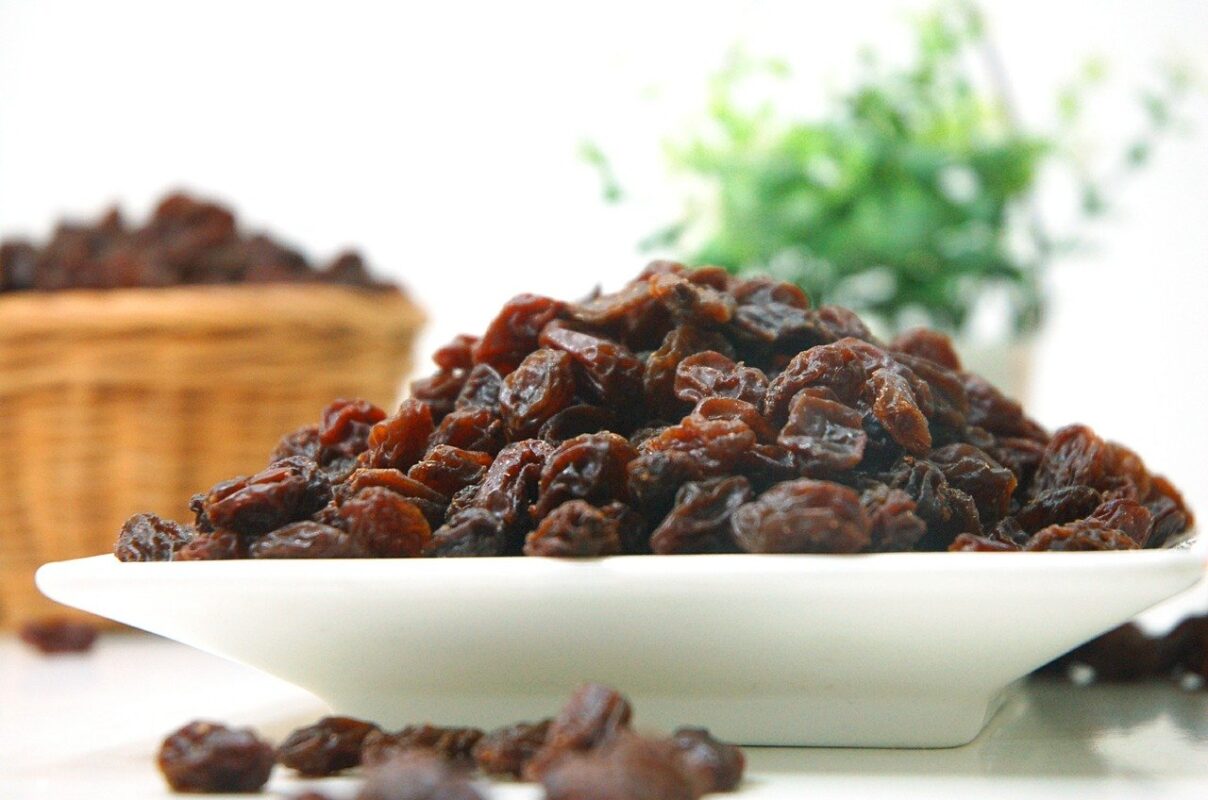
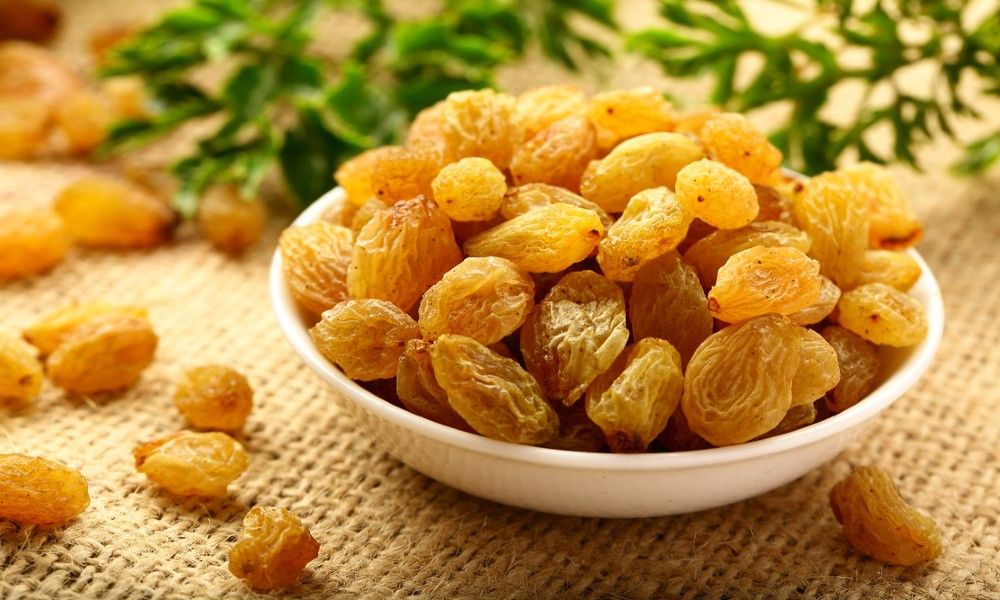

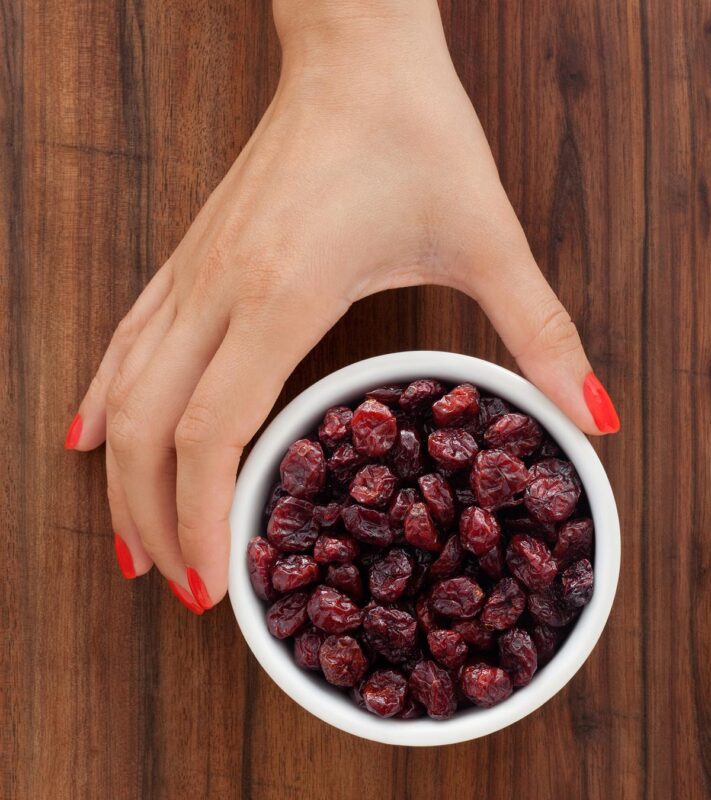


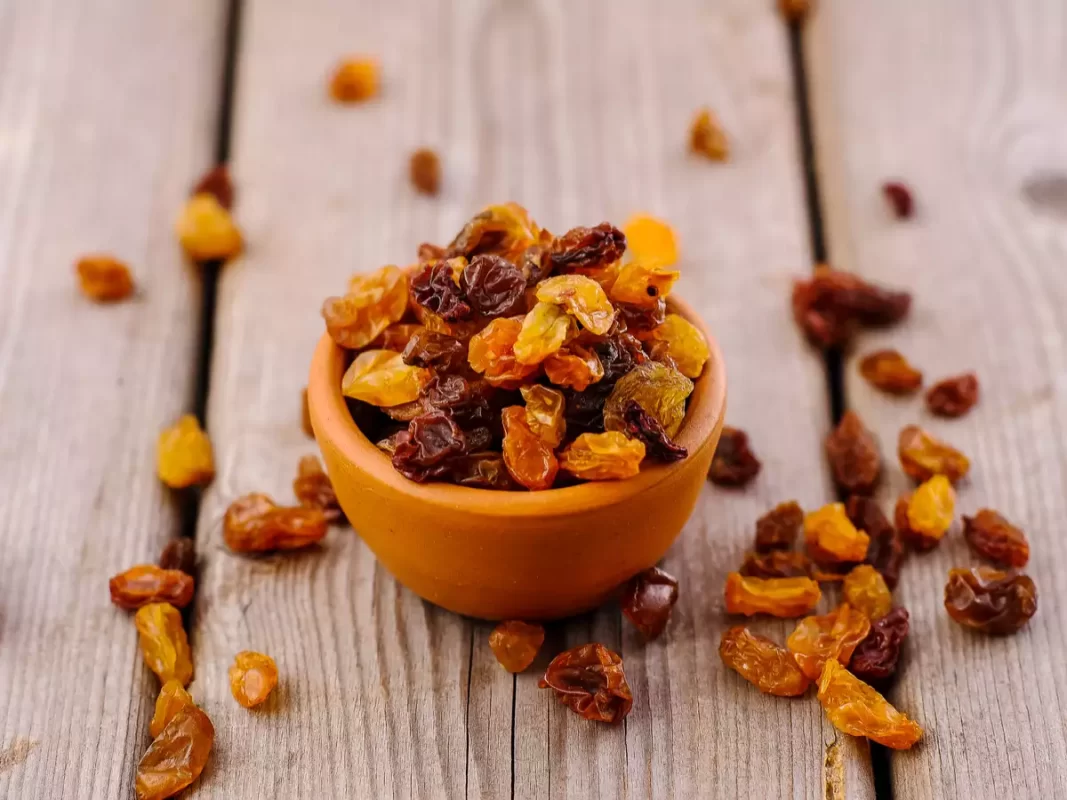
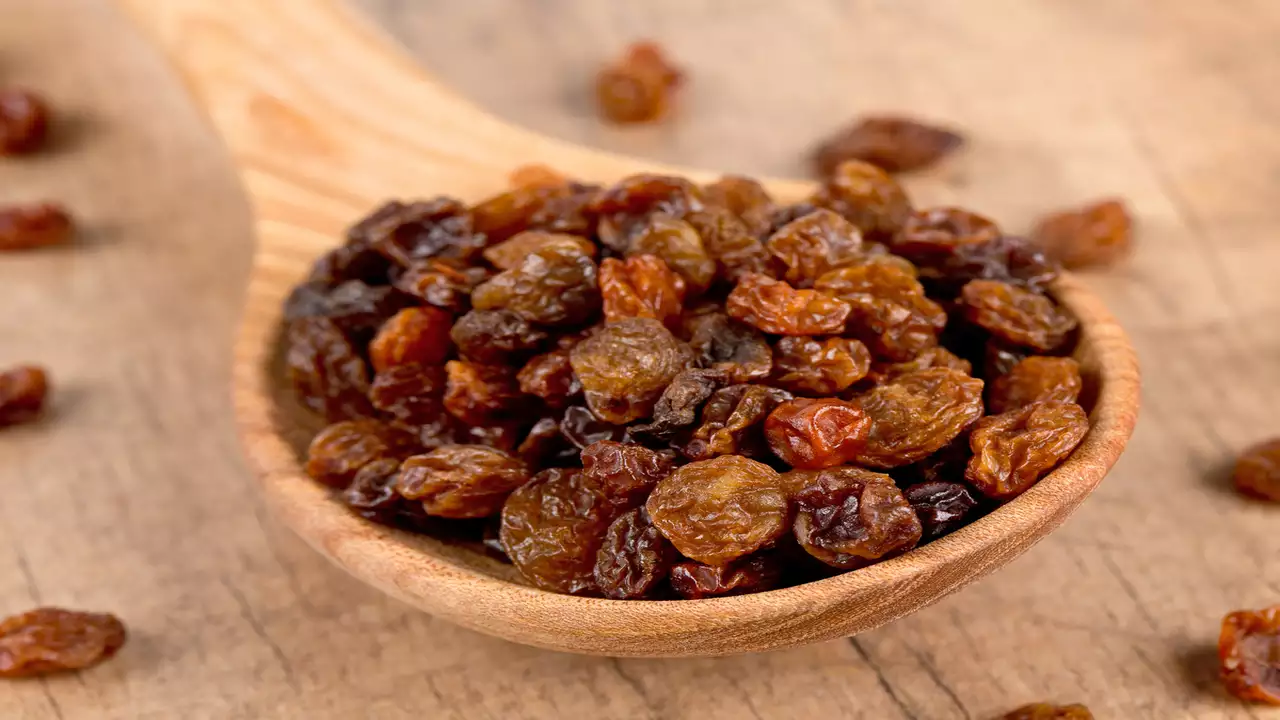

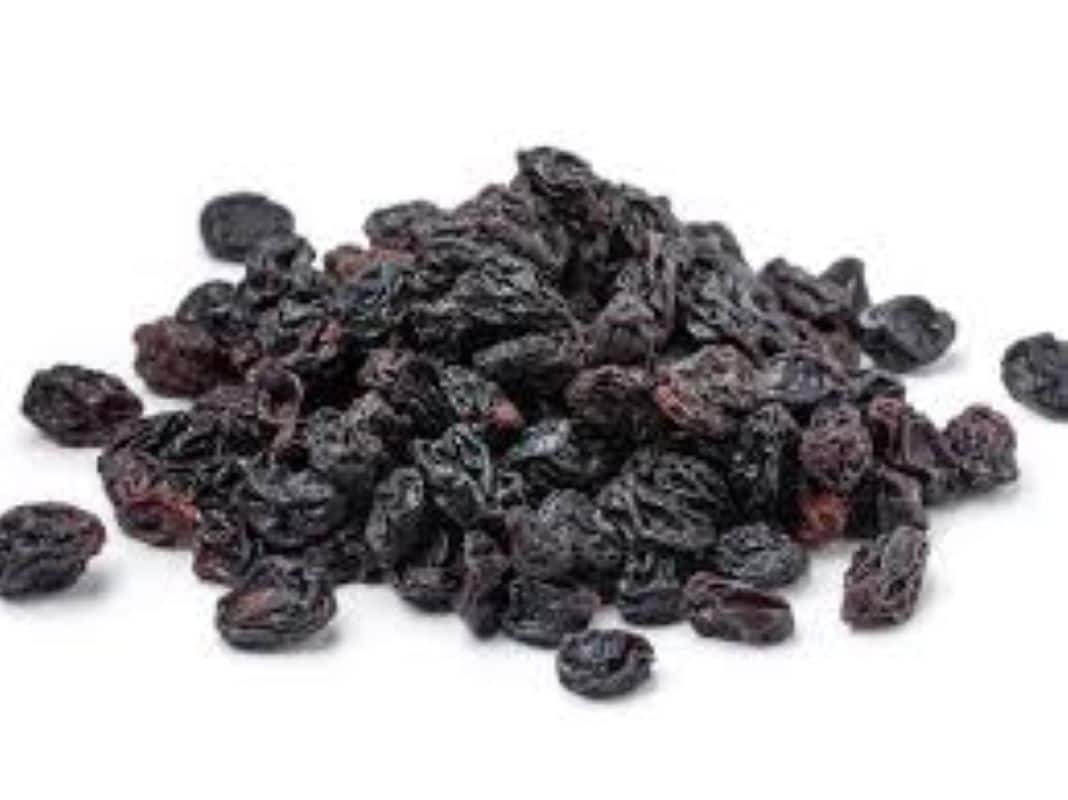
One thought on “What are the side effects of eating raisins?”